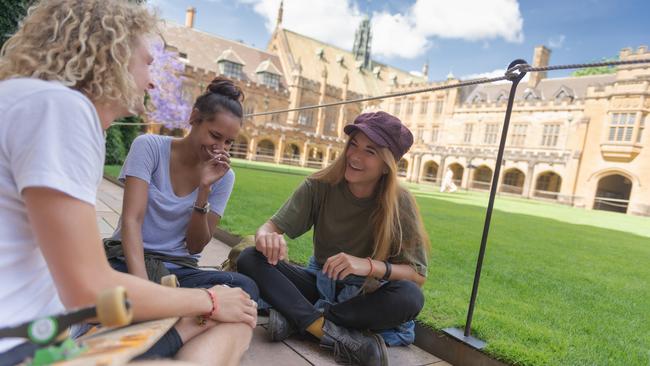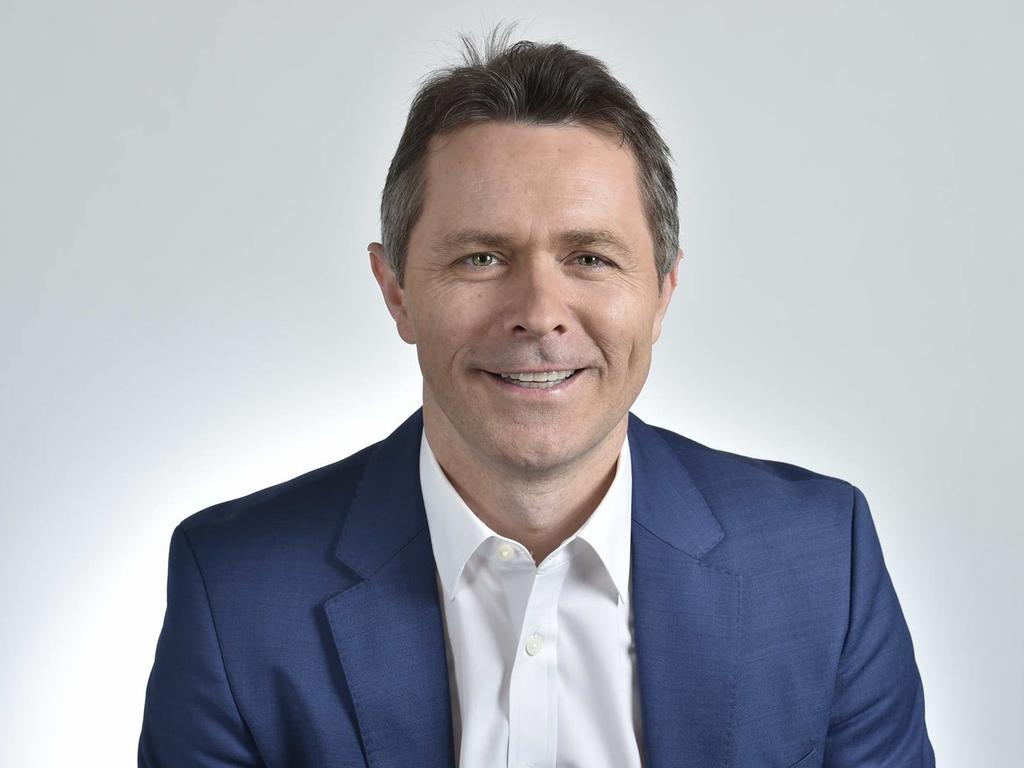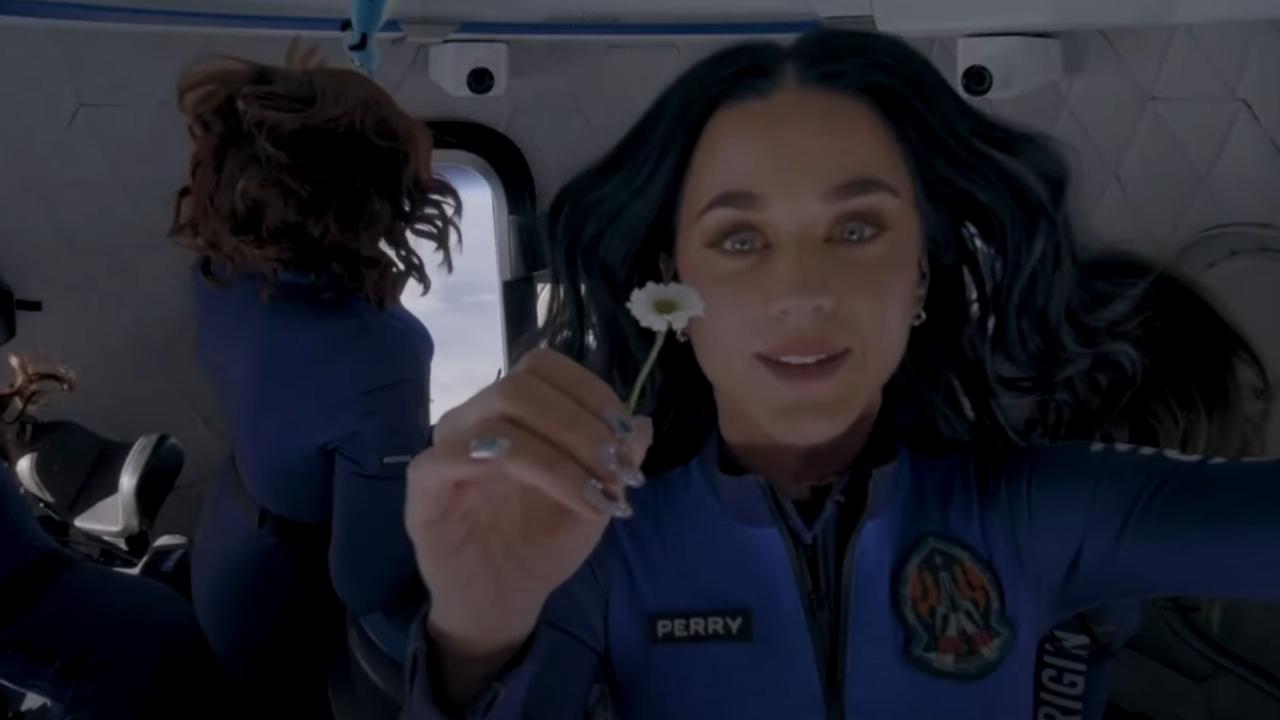Vital lessons for education policy makers
As a uni vice-chancellor, I’ve done my best to warn against impending catastrophes. I have utterly failed. So here are some lessons for education policy makers.

The worst policy disasters are slow-motion train wrecks. The engine chugs towards the broken bridge, but neither driver nor passengers care, or even notice the danger.
There are many Australian examples. Today, we recognise an aggressive China as a real danger. Ten years ago, it was our benevolent trading ally. Nothing really has changed, except we have embraced reality.
The problem with these long, shallow policy dives is that by the time you appreciate your peril, it is too late to correct. Just as you hit the ground, you remember the inconvenient Cassandras who uttered true warnings, but were disbelieved.
Remember our gulag approach to Covid. As the recent Shergold report showed, we panicked into coercive measures shattering lives and economies. Throughout, there were careful voices for a calibrated response. Today, we resent them being right.
Grimly, our national education system is chugging towards a policy precipice. Honestly, we know it is coming. But like a minor surgery patient under local anaesthetic, we prefer not to watch.
I have observed this over decades as a long-term university vice-chancellor, member of innumerable education commissions and committees, perpetrator of various government inquiries, and as a parent. I have done my best to warn against impending catastrophes. I have utterly failed.
It is all a mixture of good intentions, ignoring reality, persevering with failed solutions, and cynical politics. It is a heady, poisonous mix. Sadly, these decades of policy cluelessness are biting just when a quality education system is more important than ever.
Our economy is jittery, so new workers must be exceptionally prepared just to get a job covering inflation. That green jobs transformation arising miraculously from the ruins of fossil ruins will greedily demand students with advanced techno-scientific competencies. Globally, we need Australians so skilled they can compete with brainboxes from Taiwan and Germany, not just the kid in the next suburb.

So, in challenging times, it is deeply concerning we have either wrecked or are wrecking every component of our educational system. TAFE is a smouldering ruin, schools overrun with outdated education practices, and prestigious universities more interested in self-aggrandisement than the national good.
Of course, TAFE is the starkest example. Governments have trumpeted for years the importance of skills-based TAFE, so naturally it has been left to rot.
The problem politicians have with TAFE is that good TAFE is expensive. You cannot train sophisticated workers for the tech industry, let alone boilermakers, from pocket money. The paradoxical result is that governments have funded the vital TAFE sector like an importunate beggar.
As costs for things such as technology went up, politicians forced funding down. Foolishly, they opened the market to shonky private competitors who undercut public TAFEs by providing two-dollar shop training. Many of these were simply fronts for dodgy immigration schemes, and dragged the entire sector down in scandal and confusion. High-quality public TAFEs with decades of reputation wept.
Now, every government promises to support TAFE, including the new Albanese government. But each year it sinks further beneath the water.
Saving TAFE will involve more than the occasional budget handout and a few kind words. There needs to be a comprehensive strategy. That strategy must guarantee long-term funding, protection against educational leeches and strong incentives for universities to partner with TAFE for valuable, mutually advantageous dual credentials. This involves hard work, not flowery commitment.
Schools’ education is less in flames than an intense slow burn. The heat is not so much from a dumbing down as a hollowing out of curriculum. The packaging is fine but the contents problematic.
A central issue is that actual education in deep capacities such as language and mathematics has been neglected for much vaguer, almost conversational techniques. Note that the terms literacy and numeracy are not used here. These are mere thresholds to attainment. We do not want a population that can just add up and read. We need one that grasps mathematics and is grounded in English, history and geography.
For this, students must be challenged. Personally, every form of mathematics is an existential challenge. But in language, why do we feed students second-rate novels, fifth-rate plays and no poetry? Why do we assume no kid from Kellyville could respond to Yeats?
Tests of literacy and numeracy such as NAPLAN are interesting, not as assessments of final capacity but as glimpses of future attainment. These portents are not good. Results struggle to go up, and easily fall.
There is wider cultural failure in curriculum. In civics, we have a school population that is determinedly ignorant. Few adolescents could tell you who Lachlan Macquarie or Bennelong was, or whether Australia has a constitution (it does).

Other failures concern the teaching work-model. Teachers spend inordinate time preparing multiple lesson plans to satisfy vague curriculum envelopes. If the teacher is talented, this produces marvellous classes. If not, something is pulled from the internet and released on listless students.
These problems are not easy, but are soluble. Why not populate curriculums with standard expert-crafted lesson plans? This would enhance lesson quality and relieve teachers (especially new teachers) of the crippling drudge of constant lesson preparation. That time could be transferred to developing new, quality teaching skills.
Why not a serious approach to civics? The argument is the curriculum is already crowded. But it is a question of priorities. Knowledge and critiques of one’s own country is vital. Do it.
Then there is the perennial rancour over teacher education. This spans both schools who employ teachers and universities producing them. It is suffused with ignorance and prejudice.
For over a decade we have been obsessed not with actual teacher quality, but with the means of selecting them. It is like arguing over the cultivation of a pineapple rather than its taste.
The prime point of contention has been the Australian Tertiary Admission Rank, a rather rough measure of ranking student performance in year 12. The argument goes that only a person with an ATAR of 146 out of 100 is clever enough to be a teacher.
Put aside hysterics over hypothetical education students with an ATAR below 50. These are rare, overwhelmingly involving special disadvantage schemes. Typically, university education students with an ATAR fall between the mid-60s and 70s.
You then face two confronting realities. First, most students will not enter teaching simply with an ATAR. Yes, there may be an ATAR, but only as one part of an entry package including interviews, aptitude testing and community service. Prestige courses such as dentistry, medicine and law do this. Where is the hysteria? A stupid, underqualified dentist is a nightmare.
Second, there is no research-based evidence that high ATARS make better teachers.
Teaching is a vocation demanding absolute commitment. Provided a student has a decent school performance and a serious university education, it is this human bond to students that makes the difference, not a raw score in year 12. Think of your finest teacher. Do you know their results in the final year of school? Do you care?
This ATAR compulsive disorder has caused the current crisis in teacher supply. Embarrassed politicians and bureaucrats do not admit it, but their fanaticism over ATAR has produced the personnel crisis meaning bigger class sizes and less educated kids.
The correlation is simple. If, like former NSW education minister Adrian Piccoli, you run a propaganda campaign that all new teachers are stupid ATAR refugees, it will have entirely predictable results. It will not increase the quality of new teachers. Instead, clever students will disdain teaching as a career because they do not want to be vilified as dumb. They will be led by the cleverest students, who are prouder and have more options.
This is the reality. In NSW, the number of students entering teaching degrees has collapsed. So have their ATARs. So has the proportion of high ATAR students.
The same pattern applies across Australia.

The worst thing is that this crash, followed by massive teacher shortages, was completely predictable. Indeed, it was predicted, repeatedly, by university education faculties. Smug ministers and bureaucrats retorted there was no possibility of a teacher shortage.
Now they are propounding exactly the hopeless alleviating measures foretold by their critics. Irish teachers are imported with no ATAR, who will skedaddle after their all-expenses-paid holiday. Mid-career engineers are teaching maths. In Germany, this has worked well with genuine would-be teachers; less well with failed professionals sporting a meth habit.
Remarkably, new Education Minister Jason Clare has appointed one of the haughtiest architects of the teacher shortage to review teacher education. As Director-General of Education in NSW, Sydney University vice-chancellor Mark Scott was a doctrinaire enthusiast for ATAR eugenics and confidently predicted there would be no teacher shortage.
Then we have university education. It is the sort of rolling crisis that beset the late Roman Empire.
The university sector effectively has two components. The first is the rich, prestigious, endowed sandstone universities. They traditionally have blocked economically disadvantaged students (who typically have lower ATARs) in favour of harvesting huge numbers of wealthy overseas students, particularly from China. Think Melbourne and Sydney.
Their most recent achievement was to put the whole sector into crisis when Covid collapsed their lucrative international market. With Covid (sort of) over, they are again revving up their proportion of overseas students to dangerous proportions.
The other type of Australian university is a “working” or “service university”. They make their money by educating students, often from parlous backgrounds. In both teaching and research, they serve a community, regional or categorical. Think Newcastle and Western Sydney.
These were the universities that dramatically widened participation over the past decade, enabled the children of workers and welcomed refugees. They are definitionally more interested in mission than money.
Nevertheless, governments and policymakers typically begin their account of Australian universities with the sandstones, the Group of Eight. Everyone is flattered by cloisters, cash and condescension. Ministers go gooey when they smell ivy.

They miss the reality that it is universities of service that will educate most Australians, pluck them from social disadvantage, and focus research on their problems. Why not start with these engines of opportunity and social justice, rather than the university equivalent of a yacht club?
Particularly given a real-time drama between privilege and purpose. Universities committed over decades to serving communities are being plundered by sandstone saboteurs. These have never been much interested in the disadvantaged, but with a new Labor government, they sniff the wind.
Now they are poaching socially marginal students from the regions and underprivileged suburbs, with scholarships and other sweeteners only rich institutions can afford. They do not actually want these students, given their historic rationale for existence has been to invite only the elite. But to enhance equity credentials, they will tolerate them, and politicians smile gullibly on their efforts.
Of course, these cynical initiatives merely spread equity over previously exclusive campuses. Total equity will remain exactly the same.
Worse, these newly privileged students will be academic cannon fodder. Sandstones have neither the interest nor the learning structures to cater for students beyond the ritzier suburbs.
It is very odd. You would think governments, especially progressive governments, would concentrate on supporting working universities in their missions of service. But gushing over a pretend-Oxford is more fun than educating Mount Druitt.
One remarkable thing about this plethora of problems across our education system is that solutions do not primarily require money, whatever might be said by unions, elite universities and other rent-seekers.
What really is needed is imaginative, rational, cohesive policy. At least slow-motion train wrecks are indeed slow. We may just have time to brake, but only if we acknowledge the crumbling bridge.
Greg Craven is a constitutional lawyer and past vice-chancellor of Australian Catholic University.







To join the conversation, please log in. Don't have an account? Register
Join the conversation, you are commenting as Logout